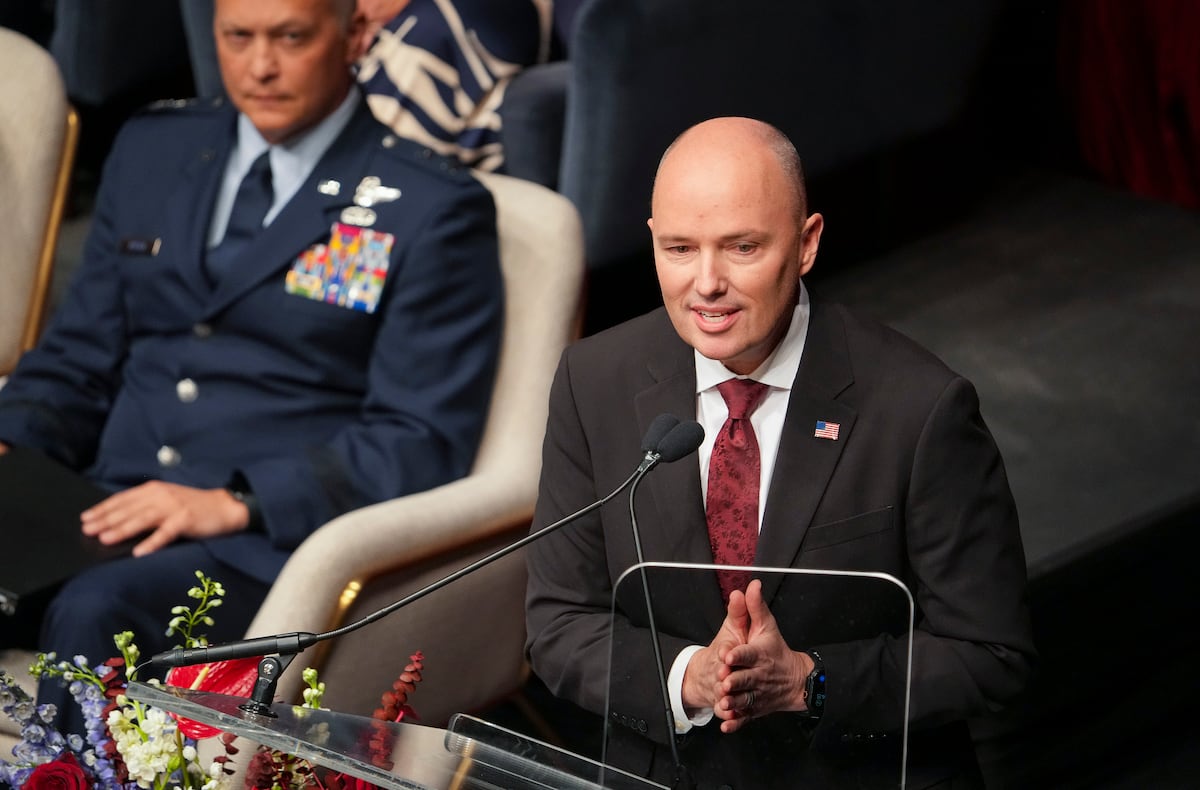Gov. Spencer Cox plans to discuss unlocking energy potential on public lands among other issues as he heads to Mar-a-Lago on Thursday along with Republican governors from across the country to pitch their priorities to President-elect Donald Trump.
“I plan to talk to him, if I get the opportunity, about energy and about public lands and how we can unleash the energy potential, especially in the West,” Cox told reporters Wednesday after his ceremonial inauguration. “We need significant reform in the energy space, especially when it comes to nuclear, being able to permit nuclear.”
One of Cox’s main goals for his second term is doubling energy production within the next decade, and his vision for achieving that includes bringing nuclear power to the Beehive State for the first time.
Utah’s history with all things nuclear has been fraught, since an untold number of residents were sickened by exposure to fallout from atomic bomb tests in neighboring Nevada. Utah was later targeted as a site for a high-level nuclear waste repository — a plan that ultimately was abandoned.
Cox said he expects discussions to arise on housing affordability, border security and inflation — topics that are concerns for all of the GOP governors.
Utah’s chief executive said he also anticipates raising the status of Bears Ears and Grand Staircase-Escalante National monuments — which were created by Presidents Barack Obama and Bill Clinton, respectively, slashed to a fraction of their size during the first Trump presidency, and then restored under President Joe Biden.
Utah has sued the federal government over those monuments, and Cox said he would like to see the lawsuit progress.
“I don’t love the pingpong game that’s going back and forth,” he said. “That’s not good for anybody and it’s not helpful. And so, ultimately, we need the Supreme Court to decide some of those major issues.”
Cox has had an evolving relationship with the incoming president. He did not vote for Trump in 2016 or 2020, but, after an assassination attempt on candidate Trump in July 2024, the Utah governor wrote the former president a letter saying he believed he could unite the country.
He later appeared alongside Trump at Arlington National Cemetery, spurring controversy because political campaigning is not allowed in the hallowed space, and Cox’s campaign sent out a fundraising email featuring an image from the meeting.
(@GovCox via X) Utah Gov. Spencer Cox, far right, poses for a photograph with the family of Marine Corps Staff Sgt. Darin Taylor Hoover and Republican candidate for president Donald Trump at Arlington National Cemetery in Arlington, Va., Monday, Aug. 26, 2024. Trump and Cox joined the Hoover family to commemorate the passing of Hoover, who was killed three years ago during the U.S. withdrawal from Afghanistan.
Cox later apologized, calling it a mistake.
Since Trump won the election in November, the governor has expressed an eagerness to work with the incoming administration, particularly when it comes to deporting criminal migrants.
He said he has been “working very closely” with Utah legislators who presented a suite of bills aimed at “making sure that we’re getting rid of the offenders who are here and trying to fix legal immigration,” a move that Cox said would require a federal solution.






























